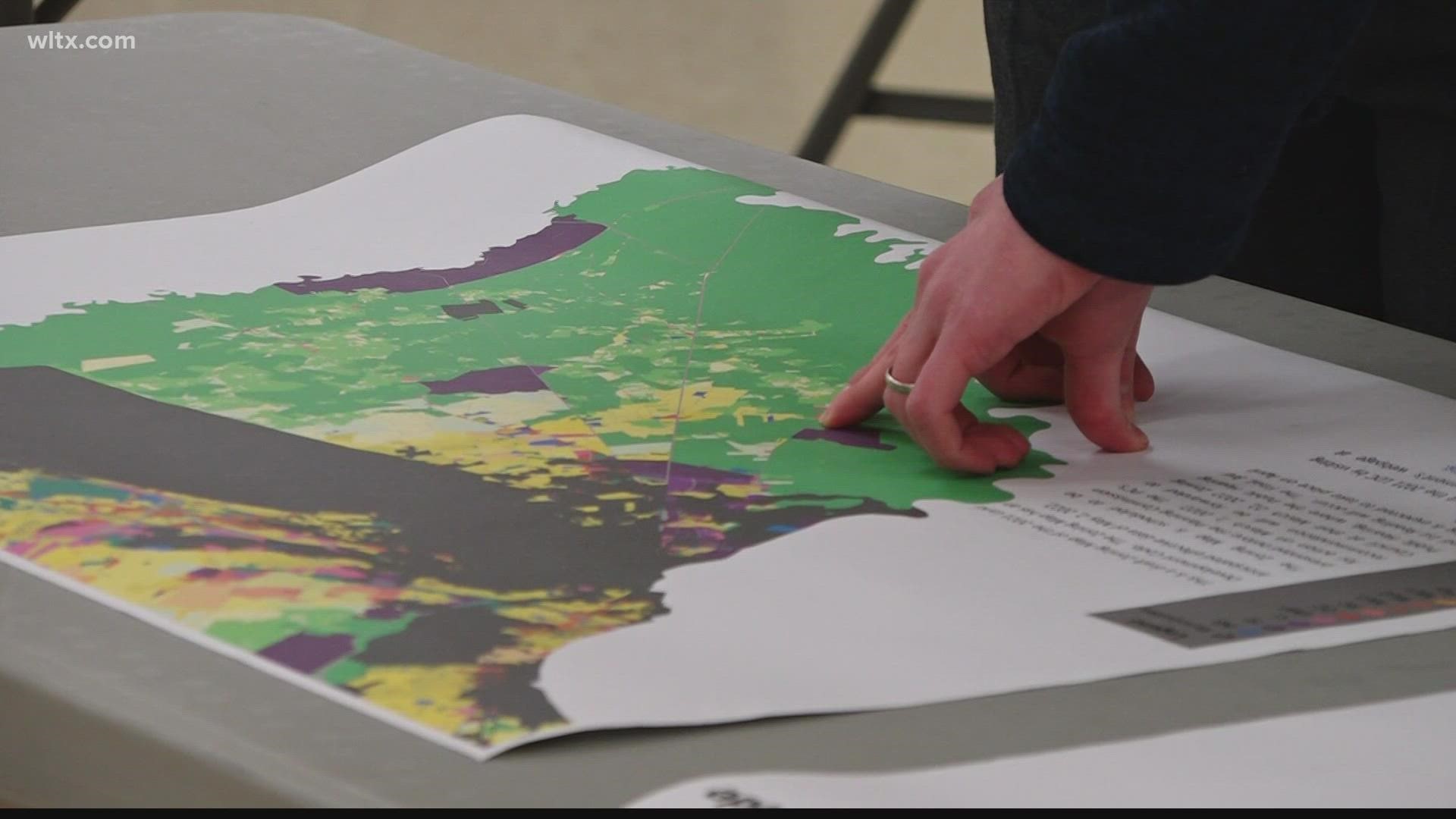COLUMBIA, S.C. — A federal lawsuit just filed by the South Carolina NAACP is challenging newly-formed political district maps that the organization says are aimed at strategically diluting voter power on the basis of race.
The 86-page document was filed in federal district court in South Carolina on Thursday and aims to halt the process from moving further until courts can examine challenged congressional and statehouse districts. A Hilton Head native who claims Gullah and West African heritage is also named as a plaintiff as he says in the suit he would be directly impacted by the latest maps.
The South Carolina House and Senate passed newly redrawn voting lines during this legislative session. Those lines will determine who can vote in what regions for state senators, state representatives, and U.S. House seats in the upcoming primary and general elections later this year.
According to the lawsuit, multiple districts in the state were designed to consolidate the votes of Black residents so that their influence didn't flow into surrounding districts. However, it also accuses the legislature of "cracking" districts in other parts of the state, intentionally separating Black voters on political maps in an effort to dilute their power.
The lawsuit alleges that both practices fly in the face of the past Voting Rights Act which, in part, aimed to prevent these practices in South Carolina and elsewhere. The suit also claims the maps violate both the 14th and 15th amendments to the U.S Constitution.
The 14th amendment granted citizenship and equal civil and legal rights to African Americans after the American Civil War and the 15th amendment guaranteed that the right to vote not be denied based on "race, color, or previous condition of servitude."
State and congressional voting maps are redrawn every 10 years after the release of new census data with the intent of making sure that the districts continue to represent the population.
The authors of the new voting lines denied any claims that they were redrawing the maps based on race.
The process calls for multiple hearings to allow for public comment. However, the lawsuit says that this, too, was handled incorrectly, suggesting that hearings were scheduled during a resurgence in COVID-19. But only the last two in September and October included the option to provide testimony remotely.
Delays also allegedly narrowed the window in which courts can "adjudicate and remedy" issues which could cause voter confusion.
To remedy the problems brought forth in the lawsuit, the plaintiffs aim to have challenged state house and congress districts passed by the legislature to be deemed unconstitutional.
It also aims to enjoin the defendants in the lawsuit, namely legislative leaders, preventing them from "calling, holding, supervising or certifying any elections" under the State House and Senate-passed bills until a constitutional remedial plan is adopted for 2022 elections.
The suit also asks for the process of designing a new Voting Rights Act-compliant map to be expedited by the court and for the defendants to be given a reasonable deadline to adopted it.
And if state legislative leaders fail to make these changes, the plaintiffs ask for any 2022 election-related deadlines to be allowed to shift if necessary.
And finally, the lawsuit asks for attorney's fees and court costs to be paid along with any other relief the court "deems just and proper."

